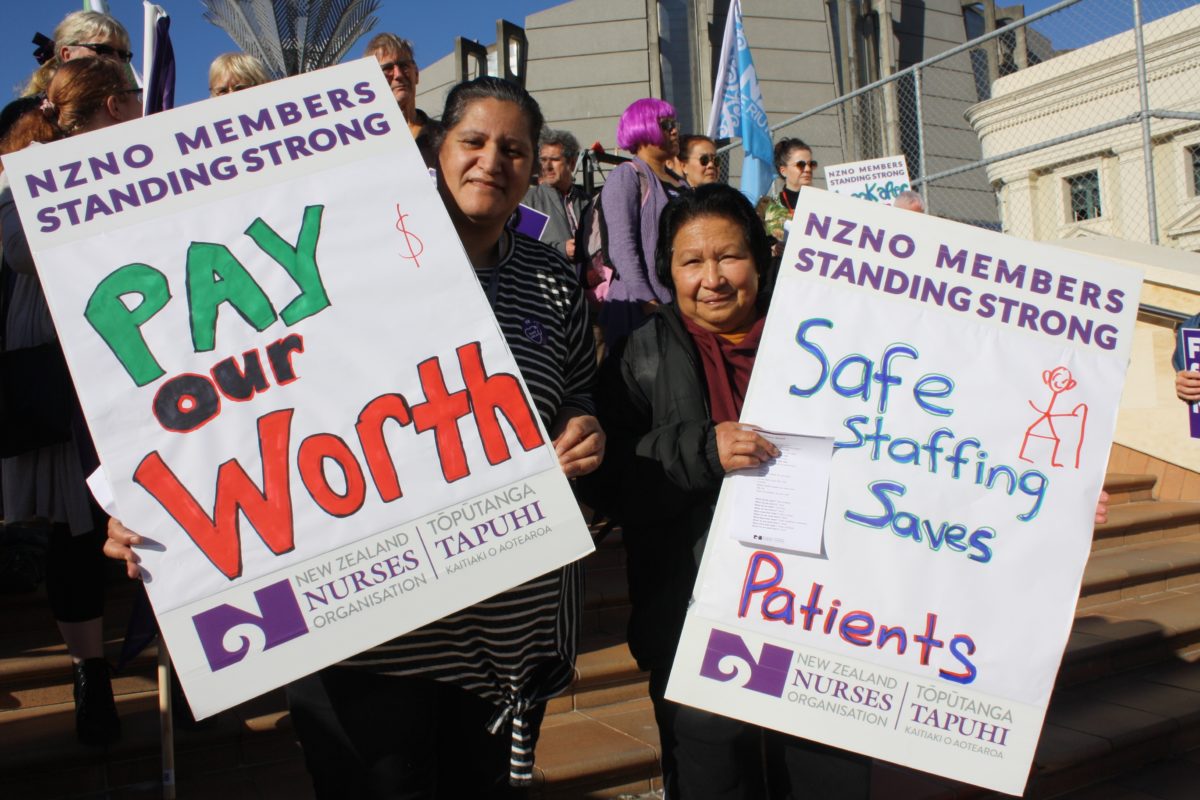NZNO College of Gerontology nursing Natalie Seymour told Kaitiaki Nursing New Zealand: “I think it’s fantastic and we’re very appreciative of what they’ve done, but it’s just a little drop in the ocean to be honest, there’s still a long way to go.
“It definitely is a positive step in the right direction and now gives us an opportunity to focus on other things like immigration and getting that sorted.”

Minister of Health Andrew Little announced on November 28 an estimated 20,000 frontline community health workers would get a pay rise from early next year — with aged care, Pacific, Māori and iwi providers and hospices first in line.
He said many organisations had struggled to keep nursing staff as they could not afford to pay as much as Te Whatu Ora. “I know this has made it very hard for them to retain nurses.”
Iwi nurse ‘over the moon’

Ngāti Porou Hauora rural health nurse Gina Chaffey-Aupouri said she had been battling for parity for decades and the “long overdue” news made her want to cry. “I’m just over the moon – it’s so exciting.
“As Māori members, we’ve always been underpaid,” said Chaffey-Aupouri, 63, who has been nursing since 17.
Chaffey-Aupouri, an NZNO delegate based in the East Cape who recently spoke about her hope of seeing pay parity for Māori and iwi provider nurses before she retired, said she finally felt excited for the future of Māori health.
“That’s just heaven-sent to me. I’m excited for the future of Māori health – I just can’t believe it, they’ve finally come to parity and equality for Māori nurses. I just want to cry.”
She said it had been a “long, hard road”, including a strike in 2018. “We’ve been pushing for so long. It brings tears to my eyes that the Government has realised that these people have worked so hard behind the scenes.
“That’s going to allow us to have people come and relieve us in our work so we can finish our studies and all sorts is going to happen now.”

Aged care, hospices, home care support and Māori and Pacific health-care organisations would be first, likely early next year, “because there is clear evidence that that is where the biggest pay gap is.” Mental health and addiction services, organisations caring for the disabled and other types of residential care would then follow.
Primary health care staff were not included in the deal, as “the sector did not show any real evidence of pay difference at this point”.
However, that could change “if evidence of disparity emerges in the future”, he said.
NZNO chief executive Paul Goulter welcomed the move, especially for Māori and Pasifika providers whose staff had endured a “crushing” pay disparity of up to 25 per cent for many years.

“Earning up to 25 per cent less just because of where you work is completely unacceptable in Aotearoa New Zealand, so we’re really pleased the Government has committed to ongoing funding for this.”
But the decision to leave out nurses working at GP practices was “regrettable” and should be “re-examined”, he said.

“The Government says it’s not convinced a pay parity gap exists for those nurses. We don’t agree with that at all, and both our members and employers say they are losing staff at rate of knots to jobs with Te Whatu Ora where the pay is much better.”
In many cases, practices were topping up wages from other services which could have benefited patients, just to keep their staff, Goulter said.
NZNO organiser Manny Down, who works with Māori and iwi providers, said it was “good that they’re recognising” the disparity, but it was crucial to ensure the full amount got to members on the floor. “Members will be happy but will be wanting to know ‘what does this mean for me?’ ”
Little said the funding would reach employers through changes to their contracts with Te Whatu Ora, Health NZ, and Te Aka Whai Ora, the Māori Health Authority. Employers would be required to use it to fix the pay difference with public hospitals. He said $40 million would be made available over the remainder of this financial year, with $200 million per year after that.

NZNO organiser Christina Couling, who works with aged care, said the funding would be helpful particularly for smaller providers who had been “really struggling, to keep them in business”.
Seymour agreed, but said lack of staff was still a “significant problem” in aged care, which relied heavily on internationally-qualified nurses amid a global nursing shortage.
Little acknowledged the work and input of NZNO and the Aged Care Association “to get to this point”.



